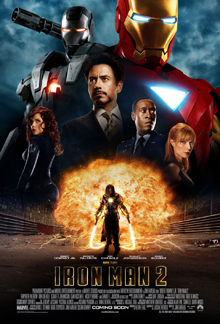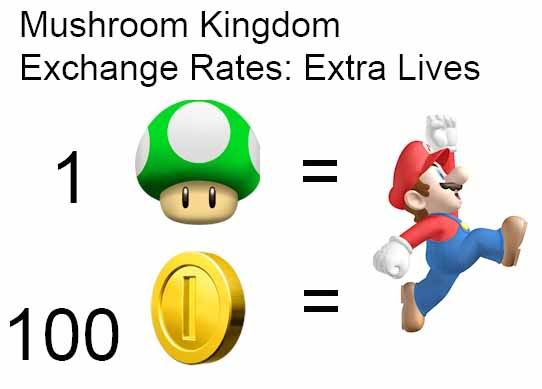Marvel knows how to make a good movie poster.
Iron Man has always been the asshole superhero. At least, from what I've read of him. Tony Stark is Bruce Wayne minus the baggage and repression, plus narcissism and a drinking problem. The first film is somewhat misleading, because it presents him as a reformed asshole. A genius arms merchant who develops a conscious along with his awesome suit of armor. In Iron Man 2, Stark is the rock star who has checked out of rehab and into a bar. It is truly the role Robert Downey Jr. was born to play. It's not role-model material, but frankly, our superheroes haven't been role-models for a while now. Dark Knight, Kick-Ass, and Watchmen have all explored the ugly side of being a superhero, and after getting a good look at that blood and grit, I don't see how we could go back to the golden age portrayal of heroes as shining paragons of morality. Much luck to the people trying to make Captain America happen.
One does have to wonder why we like these new, not-exactly-nice-guy heroes. It's not a bad boy thing. Well, maybe it is with the rough justice of Batman and Wolverine. But I think we buy into cocky jerks like Dr. House and Tony Stark for a different reason. In Iron Man 2, Tony's 'reckless' behavior is thinly justified by a soon-to-be terminal case of blood poisoning. I never once thought "Poor Tony!" or "Oh No! Will he make it?" though. On the contrary, I thought "He's Tony Fucking Stark. He'll invent a brand new kind of blood if he has to." And that's why I like such characters. They are aware of their own super-heoric abilities. They're the anecdote to poseury and politically correctness. The antithesis to incompetent sweet-talkers like Sam Rockwell's villain, Justin Hammer.
The suits really are pretty enough to sell the movie by themselves.
All the same, Iron Man 2 is not a high source of moral fiber. It's about as good for you as high-fructose corn syrup, but it's just as delicious. Don Cheadle is a huge upgrade over Terrence Howard, and it's a shame he didn't get more screen-time. His tongue in cheek introduction is excellent. Scarlet Johanson is incredibly hot as Black Widow, and her fight scene is almost on par with the mania that was Kick-Ass's Hit-Girl, though much less violent, as you would expect. Paltrow is still endearing as the anachronistic House Wife/Secretary, Pepper Pots. Mickey Rourke is great as Ivan Vanko, AKA Whiplash, though his climactic battle with Iron Man wraps up a little too quick, just like the Iron Monger fight in the original Iron Man. Samuel L Jackson is always a fun presence, but his Nick Fury cameo feels more than a little bit forced given how much else there was going on with the plot.
After repeatedly hearing "It's not as good as the first one," I had an absolute blast with Iron Man 2. The repartee runs witty, the action scenes are cool-looking and rife with explosions, and the plot feels fairly polished despite it's busyness. If you are a comic book fan, it'll be an excellent time. As is the case with the vast majority of the films I discuss here, I wouldn't recommend bringing grandma. Summer blockbusters are off to a good start.




